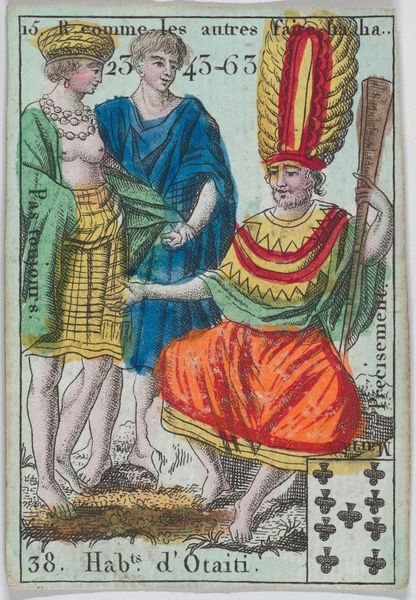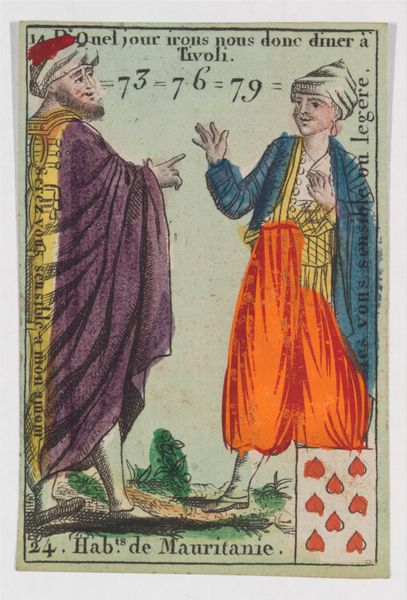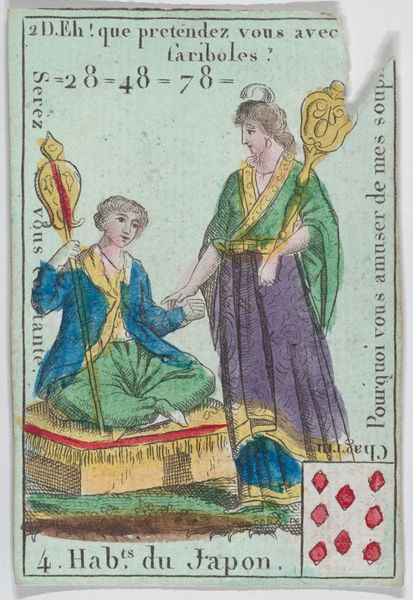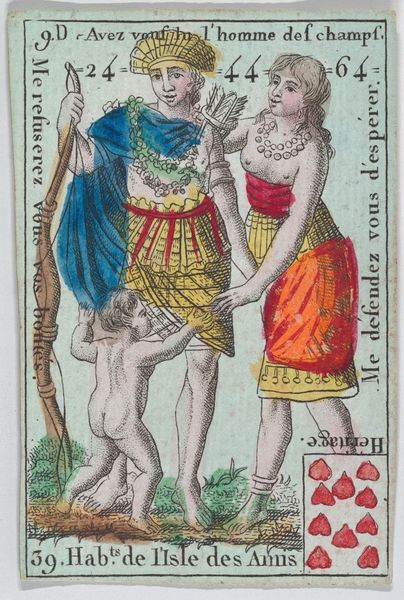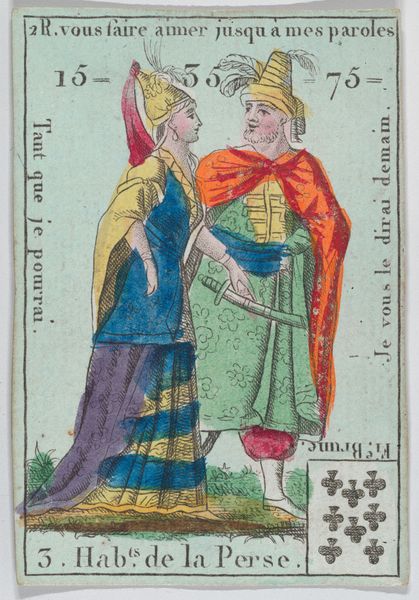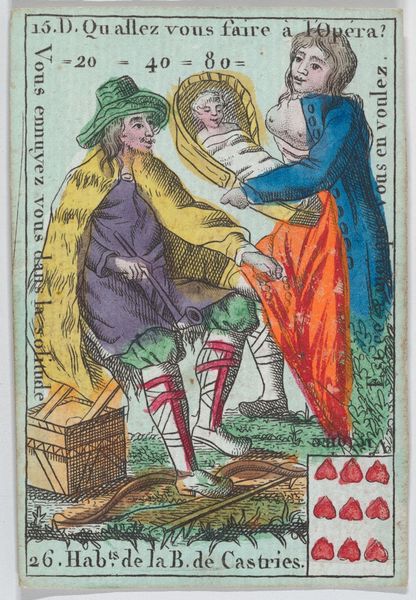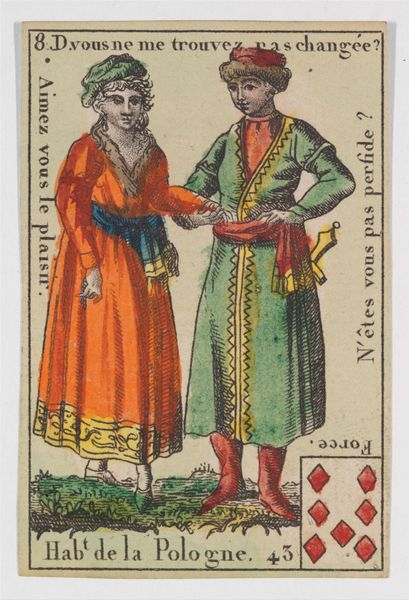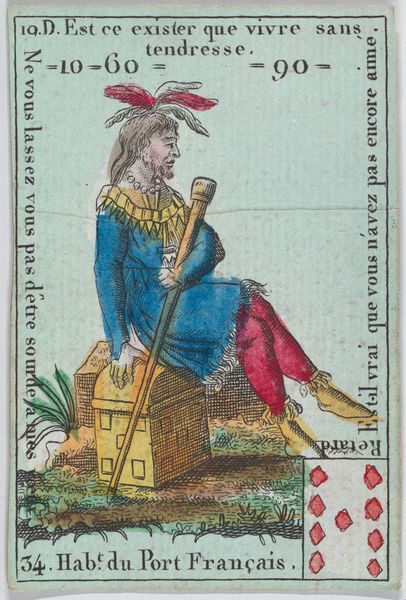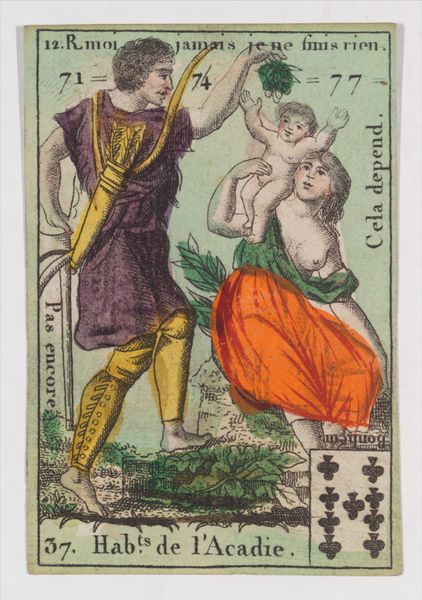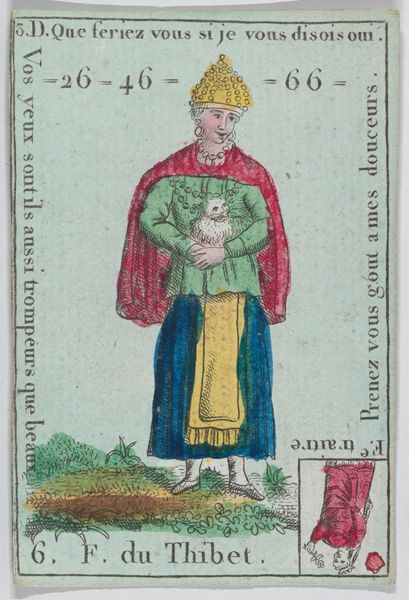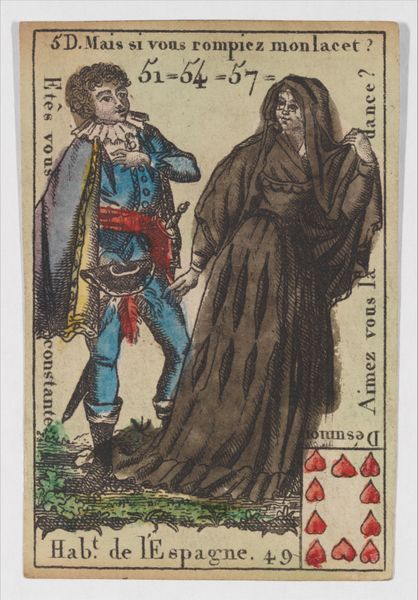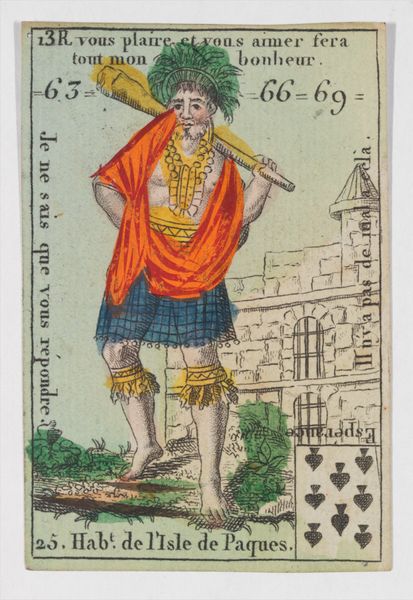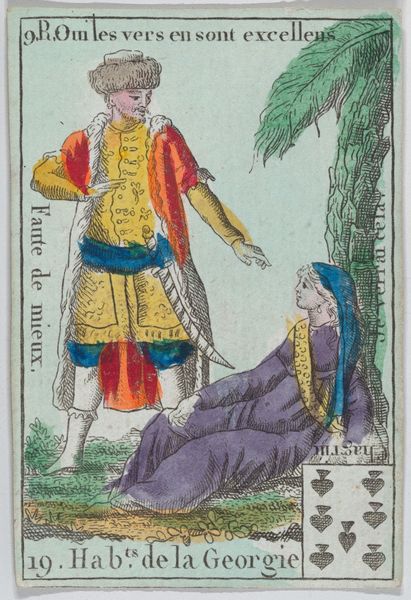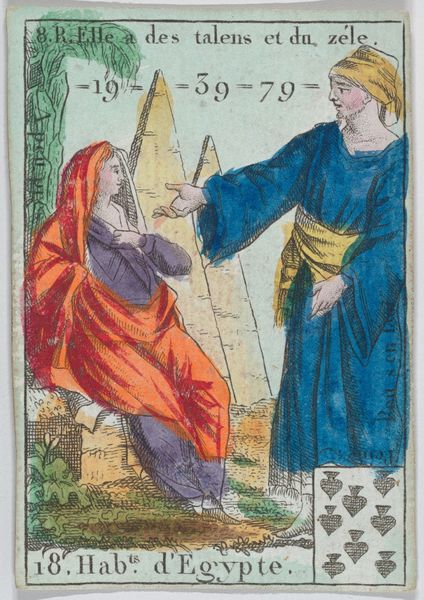
Hab.ts de l' Arabie from playing cards "Jeu d'Or" 18th century
0:00
0:00
drawing, coloured-pencil, print, ink, engraving
#
drawing
#
coloured-pencil
# print
#
ink
#
coloured pencil
#
orientalism
#
genre-painting
#
engraving
#
miniature
#
watercolor
Dimensions: 3 3/16 × 2 1/16 in. (8.1 × 5.3 cm)
Copyright: Public Domain
This playing card, "Habits de l'Arabie," presents us with a curious cultural interplay, featuring figures in what are intended to be Arabian garments. Notice the turbaned man astride a horse, his spear suggesting authority, while the woman stands adorned in a long blue coat, a red fez-like hat, extending her hand in offering or request. It evokes scenes of encounter and exchange, laden with layers of cultural projection. The turban, a ubiquitous symbol across the Islamic world, signifies not just religious identity but also status and community ties. From the elaborate headgear of Ottoman sultans to the simple wraps of desert nomads, the turban’s form and meaning have varied widely across time and geography. In earlier Byzantine art, turbans were often used to denote foreigners, particularly those from the East, imbuing the symbol with an aura of otherness. Consider how such symbols, charged with historical and cultural weight, engage our collective memory. They speak to subconscious notions of identity, power, and the enduring human drama of cultural exchange. The image, like the symbols it employs, becomes a vessel, carrying echoes of the past into the present.
Comments
No comments
Be the first to comment and join the conversation on the ultimate creative platform.
